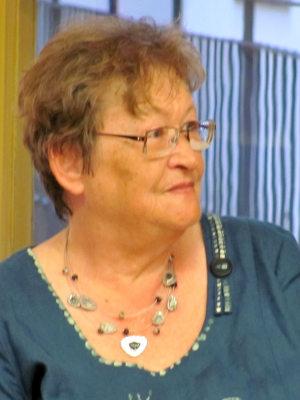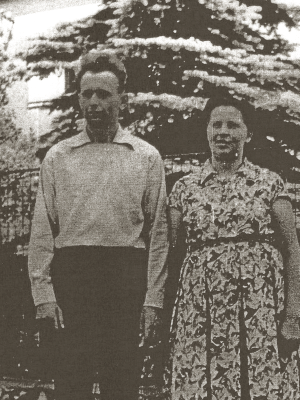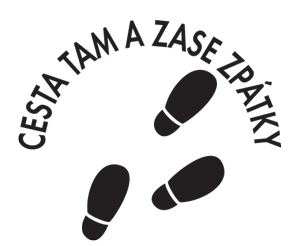Traces of totalitarianism in Velká bíteš – the story of Ms. Zora Krupičková
 Zora Krupičková was born on June 22, 1940. Together with her family she lived in Velká Bíteš. Her mother, Božena Sedláková, born Rieglerová, was a seamstress and later started working as a clerk. Her father, Jaroslav Sedlák, took part in the antifascist resistance during the Second World War and was even arrested by the Gestapo. "I still remember a game we played as children - it was called Gestapo. One of us started banging loudly on the door and the rest to quickly looked for a place to hide. For us, the Gestapo was a kind of an evil ghost parents scare their children with," recalls Ms. Krupičková.
Zora Krupičková was born on June 22, 1940. Together with her family she lived in Velká Bíteš. Her mother, Božena Sedláková, born Rieglerová, was a seamstress and later started working as a clerk. Her father, Jaroslav Sedlák, took part in the antifascist resistance during the Second World War and was even arrested by the Gestapo. "I still remember a game we played as children - it was called Gestapo. One of us started banging loudly on the door and the rest to quickly looked for a place to hide. For us, the Gestapo was a kind of an evil ghost parents scare their children with," recalls Ms. Krupičková.
After the war, Jaroslav Sedlák became the chairman of the Regional National Commitee in Jihlava. In 1952, he was arrested again. This time, he was charged of betraying communism, even though both he and his wife were convinced about the rightfullness of communist ideas.
„In the fifties, they started organising Pioneer camps for children. Every Pioneer, including me, dreamt of visiting the country whose example they were told to follow – the USSR. At that time, my father was arrested for the second time. I found out about it directly from my mother who had to give me the bad news that although my school had selected me for the International Children's Camp in Sochi – as a reward – I could not go because of dad's arrest. And when I objected that he was not even living with us anymore she only answered helplessly: “There's nothing we can do.” Father wrote to me several times from the prison, but they were only the usual fatherly advices to study well, behave myself and play the piano.
After Dad's arrest, a few pages were printed, a sort of pamphlet, with a list of the reasons for his arrest. Betrayal of the ideas of the Party, enemy of the working people and many more. He became ill in prison and nothing good awaited him after his release. He wanted to work in the PBS factory in Bíteš but they told him (with secret apologies and regrets since he had previously participated in founding the factory) that they had been forbidden to employ him. He received a pension of 250 Crowns, at the beginning, and I don't know how he managed to live off this very low sum. He traveled all over the Republic. He knew many people from the times when he served as the RNC chairman in Jihlava. He was rehabilitated during the Prague Spring in 1968 and and was even slightly recompensed. Later, he worked as a road builder and people liked him as he helped many during his life. After that his health worsened and he died at the beginning of the seventies.”
Zora Krupičková recalls the life of the youth:
„I remember that around 1955, the first wind-up gramophones appeared in Bíteš. At that time, the youth gathered in the Education Centre U Žaloudků. We were only allowed to listen to traditional folk of Soviet music. Of course, we were interested in something completely different. We secretly bought rock'n'roll vinyls and danced booggie-wooggie. Both were forbidden, of course, so we put out sentries and whenever someone was coming, we quickly popped in a folk music LP.“
„Soon a new kind of entertainment appeared when they opened a cinema in Bíteš. We went there quite often. It was an accustomed fact, that the audience had to sit through a newsreel about the latest progress in the USSR before the film began.“
„Without totalitarianism people would live without the fear that someone would report on them for their opinions, the fear that their children would be denied education, that they wouldn't be allowed to go abroad, that they would be fired. There wouldn't State Security usurping the right to decide about people's lives.“
Traces of totalitarianism in Lhotka – the story of František Lysý
 In the fifties, there were fifteen houses in the village of Lhotka. At that time, some farmers were being driven out of their homes. Six farmers from Lhotka were forced to move out, their property was confiscated and into their houses moved similarly affected farmers from other villages. The eviction orders usually came with the word FOREVER.
The family of Mr. Lysý was one of the six.
In the fifties, there were fifteen houses in the village of Lhotka. At that time, some farmers were being driven out of their homes. Six farmers from Lhotka were forced to move out, their property was confiscated and into their houses moved similarly affected farmers from other villages. The eviction orders usually came with the word FOREVER.
The family of Mr. Lysý was one of the six.
František Lysý was born on January 5, 1929. He had one brother, who was four years younger. Their father tragically died in 1944 when František was only fifteen. It was the war, and their widowed mother had to take care of the family all by herself.
“Everything took a bad turn after February 1948. President Klement Gottwald publicly swore then that there wouldn't be agricultural cooperatives – like the kolchoz in the USSR - in our country. But soon everything changed. We bought a tractor – Zetor 25 – and several other pieces of machinery just after the war, to ease up our work. However, not even with their helpcould we fulfill the mandatory contributions. For example, we had to bring in 80q of rye. Nobody cared that this left us with nothing for our own livestock. Should we meet the norms, they would be higher next time, and should we not, the state would call us saboteurs of the five-year plan. Our machines were taken from us, the Integrated Agricultural Cooperative (IAC) confiscated them one by one. The District National Committee sent us a document saying that the IAC is buying the machines, but we haven't seen any money. I tended the fields with horses I borrowed from my relatives. After a long day's hard work, I had to join others in taking night watches. We knew no rest.”
“I was conscripted on October 1, 1951 and served until November 25 1953. I got an extra month to the usual two years. As an unreliable person, I was assigned to the Auxiliary Technical Battalions, just like many other boys from kulak (rich farmers) families. They sent us to the mines, for example. I did the military service in Most, where we received training without weapons. After that, they moved us to Žatec. I remember the constant political lecturing and night alarms.”
I didn't know what was going on at home. My mother and brother kept it secret from me, to make sure I wouldn't do anything stupid. Therefore, I didn't know that my mother was arrested for refusing to enter the IAC. Soon after, my family was evicted. The chairman from Tasov held against us that that we refused to enter the IAC.
The residents of Lhotka frequently changed between 1953 and 1970. Two families were moved into one house and had to work on state-owned farms. At the beginning of 1970, my wife was told about a free position for a machinery repairman at a farm in the nearby village of Křeptov. I managed to get this job. In the same year, following the advice of others I bought back our house in Lhotka. There was, unfortunately, no way to buy our fields back as well; there was no legislation that would allow it. My mother was allowed to return to Lhotka earlier on; my brother got married and remained in Mladějov. They returned our land only after the Velvet Revolution, after the year 1989. Mother did not live to see it back in our hands; she died, aged 92, before the end of the communist era.
A memorial, reminding of the fate of the evicted families, stands on Lhotka's village square since September 2011.
“Is it possible to forgive those who caused you suffering? Yes, one must forgive. I am a religious man and the Bible says forgiveness is necessary. But to forget, I cannot.”


 Zora Krupičková was born on June 22, 1940. Together with her family she lived in Velká Bíteš. Her mother, Božena Sedláková, born Rieglerová, was a seamstress and later started working as a clerk. Her father, Jaroslav Sedlák, took part in the antifascist resistance during the Second World War and was even arrested by the Gestapo. "I still remember a game we played as children - it was called Gestapo. One of us started banging loudly on the door and the rest to quickly looked for a place to hide. For us, the Gestapo was a kind of an evil ghost parents scare their children with," recalls Ms. Krupičková.
Zora Krupičková was born on June 22, 1940. Together with her family she lived in Velká Bíteš. Her mother, Božena Sedláková, born Rieglerová, was a seamstress and later started working as a clerk. Her father, Jaroslav Sedlák, took part in the antifascist resistance during the Second World War and was even arrested by the Gestapo. "I still remember a game we played as children - it was called Gestapo. One of us started banging loudly on the door and the rest to quickly looked for a place to hide. For us, the Gestapo was a kind of an evil ghost parents scare their children with," recalls Ms. Krupičková.
 In the fifties, there were fifteen houses in the village of Lhotka. At that time, some farmers were being driven out of their homes. Six farmers from Lhotka were forced to move out, their property was confiscated and into their houses moved similarly affected farmers from other villages. The eviction orders usually came with the word FOREVER.
The family of Mr. Lysý was one of the six.
In the fifties, there were fifteen houses in the village of Lhotka. At that time, some farmers were being driven out of their homes. Six farmers from Lhotka were forced to move out, their property was confiscated and into their houses moved similarly affected farmers from other villages. The eviction orders usually came with the word FOREVER.
The family of Mr. Lysý was one of the six.
































